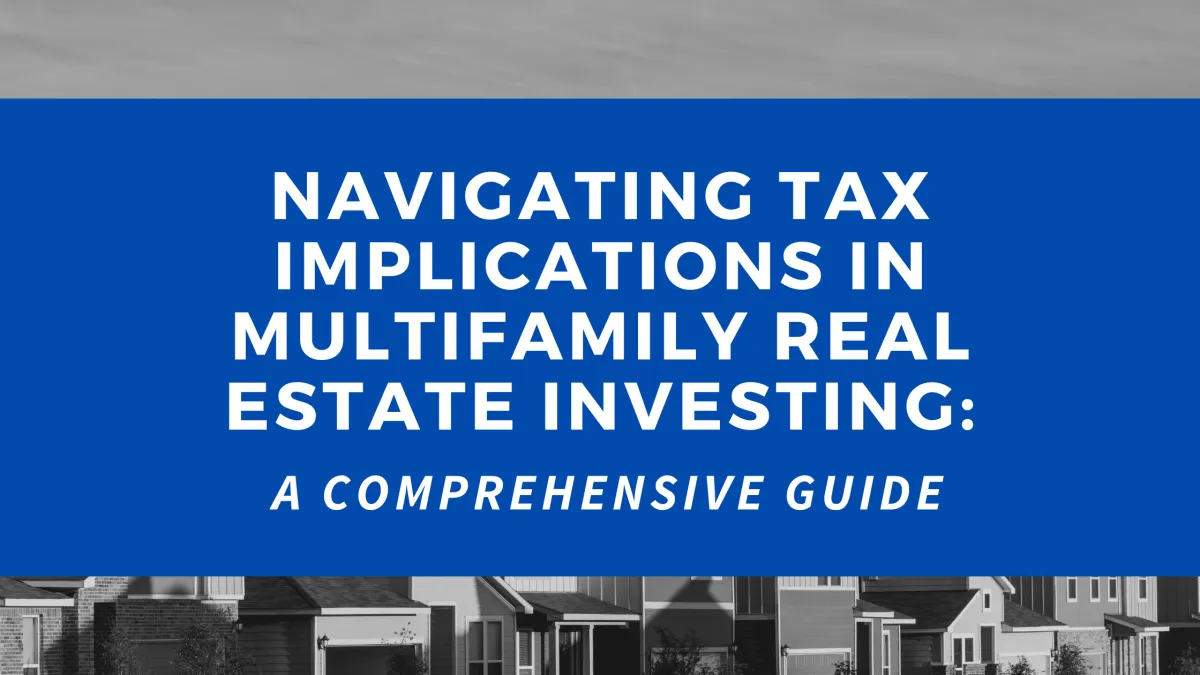BLOG
BLOG

Navigating Tax Implications in Multifamily Real Estate Investing: A Comprehensive Guide
Multifamily real estate investing offers a plethora of opportunities for financial growth, but it also comes with its own set of complexities—especially when it comes to taxes. Understanding the tax implications can make a significant difference in your overall return on investment. This guide aims to provide a comprehensive overview of the tax considerations you should be aware of in multifamily real estate investing.
Depreciation: A Double-Edged Sword
One of the most significant tax benefits of real estate investing is depreciation. The IRS allows you to depreciate the value of your property over a set period, reducing your taxable income. However, it's essential to understand that depreciation recapture can impact your tax liability when you sell the property.
1031 Exchanges: A Path to Defer Capital Gains
Section 1031 of the Internal Revenue Code allows investors to defer capital gains taxes by reinvesting the proceeds from a property sale into a "like-kind" investment. This can be a powerful tool for portfolio growth, but it comes with strict rules and timelines that must be followed meticulously.
Passive Activity Losses: Limitations and Opportunities
Multifamily real estate is generally considered a passive activity, which means that losses can only be used to offset passive income. However, there are exceptions for "real estate professionals," which can provide opportunities for offsetting other types of income.
Property Tax Considerations
Local property taxes can vary widely depending on the location of your investment property. These taxes are generally deductible, but it's crucial to understand how they fit into your overall tax strategy.
The Impact of Financing
The way you finance your multifamily property can also have tax implications. Mortgage interest is typically deductible, but limitations may apply. Additionally, loan origination fees and points can often be deducted, but the rules are complex and may vary depending on the loan's structure.
Tax Credits and Incentives
Various federal, state, and local tax credits and incentives may apply to multifamily real estate investments. These can range from credits for energy-efficient upgrades to incentives for investing in economically disadvantaged areas. Being aware of these opportunities can significantly impact your investment's profitability.
Navigating the tax landscape of multifamily real estate investing is a complex but crucial aspect of maximizing your ROI. By understanding the nuances of depreciation, 1031 exchanges, passive activity losses, property taxes, financing, and tax credits, you can make more informed decisions and optimize your tax strategy.
Feel free to reach out to us for more personalized advice or to delve deeper into these tax considerations. We're committed to helping you succeed in your multifamily real estate journey. Contact us!
